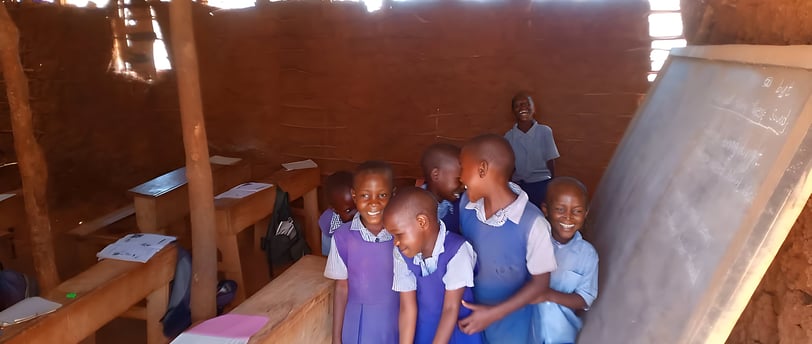Only 18% of Kenyan women aged 25+ have completed secondary education
The girls elementary education in Kenya is very poor due to very unfavorable conditions. The "good news" is that a relativly small effort can make a very big difference!
STUDY
Summary of the New Castle University study
12/7/20242 min read


The realities of schools in rural Kenya and young girls
The education system in rural Kenya faces numerous challenges, which significantly hinder the ability of children, especially girls, to complete basic education. These obstacles are deeply rooted in socio-economic factors, cultural practices, and infrastructural deficiencies, creating an environment where accessing quality education is quite difficult.
Socio-Economic Barriers
Poverty is one of the most significant barriers to education in rural Kenya. Many families struggle to meet their basic needs, making it difficult to prioritize education. Parents often lack the financial resources to buy school uniforms and books, or even cover the cost of school fees. As a result, children, particularly girls, are frequently kept at home to help with domestic chores or to contribute to the family income through manual labor. This economic burden disproportionately affects girls, as they are more likely to be seen as secondary to boys when it comes to receiving an education.
Cultural Practices
Cultural norms and traditional practices also play a substantial role in limiting educational opportunities for girls. Early marriages are prevalent in many rural communities, where girls are often married off at a young age to reduce the financial burden on their families. These early marriages force girls to drop out of school, truncating their education and subjecting them to a life of domestic responsibilities and early motherhood. The health risks associated with early pregnancies further compound the challenges these girls face, making it almost impossible for them to return to school and continue their education.
Gender biases within families and communities further exacerbate the problem. In many cases, boys’ education is prioritized over girls’, reinforcing the notion that girls' primary roles are as wives and mothers rather than as students or future professionals. This deep-seated gender inequality discourages families from investing in the education of their daughters, thereby perpetuating a cycle of limited educational attainment for girls.
Infrastructural Deficiencies
Rural schools' infrastructure is often inadequate, with many lacking basic facilities such as proper classrooms, sanitation, and learning materials. Sanitation issues are particularly problematic for girls, who may miss school during their menstrual periods due to a lack of proper facilities. This absence can lead to falling behind academically and eventually dropping out.
The shortage of qualified teachers in rural areas further impedes the quality of education. Many rural schools are understaffed, and teachers are often underpaid, leading to low morale and high turnover rates. This instability in teaching staff negatively impacts the consistency and quality of education that students receive. Additionally, rural schools frequently lack essential learning materials and resources, such as textbooks and laboratory equipment, making it challenging to deliver a comprehensive and effective education.
Long Distances and Transportation Issues
In rural Kenya, many children have to travel long distances to attend school. The journey can be arduous and unsafe, particularly for girls, who are at risk of harassment and violence while commuting. The lack of reliable transportation options exacerbates this problem, leading to high absenteeism rates and, ultimately, dropouts.
Health and Nutrition
Health and nutrition also play a crucial role in the educational outcomes of children in rural Kenya. Malnutrition is a common issue, and hungry children struggle to concentrate and perform well academically. Additionally, the prevalence of diseases such as malaria and HIV/AIDS in rural areas further affects students' ability to attend and excel in school.
We are dedicated to making a difference; please support us by sharing and liking this post. Help us to make the world a better place with just a few clicks..
